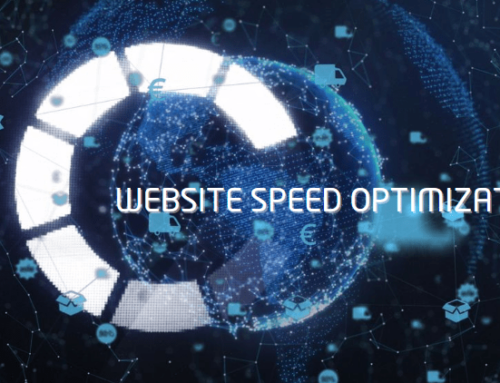
In the competitive world of digital marketing, understanding On-Page SEO is essential for improving search rankings and driving organic traffic. Unlike off-page SEO, which focuses on backlinks and external signals, On-Page SEO deals with optimizing elements on your website, ensuring search engines correctly understand and rank your content.
This guide from SEO University by Salterra breaks down the core aspects of On-Page SEO, covering everything from keyword placement to schema markup and site speed optimization.
What is On-Page SEO and Why Does It Matter?
On-page SEO refers to optimizing individual web pages to rank higher in search engine results. It includes elements like:
- Title tags and meta descriptions for better click-through rates (CTR)
- Header tags (H1, H2, H3, etc.) for content structure
- Keyword optimization and content quality
- Internal linking strategies to enhance navigation
- Page speed and mobile responsiveness
- Schema markup for rich results
Mastering these elements is crucial for any website’s success. Taking an SEO On-page class can help businesses and marketers better understand these strategies, ensuring their websites are fully optimized for search engines. Whether refining meta tags or improving site speed, an expert-led SEO On-page class from SEO University by Salterra provides the skills to boost rankings, increase engagement, and drive conversions.
Essential On-Page SEO Factors for Higher Rankings
Optimizing Title Tags and Meta Descriptions
The first things users and search engines see are title tags and meta descriptions. They should:
✅ Include the primary keyword (e.g., On-Page SEO)
✅ Stay under 60 characters for titles and 160 characters for meta descriptions
✅ Encourage clicks with engaging, benefit-driven language
Example:
Title: “Boost Your Rankings with On-Page SEO | SEO University by Salterra”
Meta Description: “Learn expert On-Page SEO techniques to improve rankings, optimize content, and drive organic traffic. Enroll with SEO University by Salterra today!”
Using Header Tags for Structure and Readability
Header tags (H1, H2, H3) help search engines and users understand content hierarchy. A well-structured page:
- Uses one H1 tag per page with the main keyword
- Breaks sections into H2 and H3 tags for clarity
- Incorporates semantic keywords naturally in subheadings
Example:
H1: The Ultimate Guide to On-Page SEO
H2: Key Ranking Factors for On-Page SEO
H3: Optimizing Title Tags and Meta Descriptions
Keyword Optimization and Content Relevance
Search engines prioritize content that provides value and relevance. To optimize for keywords:
✔ Use the primary keyword naturally in the first 100 words
✔ Incorporate LSI keywords (e.g., meta tags, content optimization, search engine rankings)
✔ Write long-form, in-depth content (1,500+ words) for authority
Internal Linking and URL Structure
Internal links help:
🔗 Guide users to relevant pages
🔗 Pass SEO authority between pages
🔗 Reduce bounce rate
Best practices:
Use descriptive anchor text (e.g., “Learn advanced On-Page SEO techniques” instead of “click here”)
Keep URLs short and keyword-rich (e.g., yourwebsite.com/on-page-seo-guide)
Schema Markup for Enhanced Search Visibility
Schema markup provides structured data that helps search engines display rich snippets like:
📌 Reviews and ratings
📌 FAQs and how-to guides
📌 Local business details
Adding schema boosts CTR and provides better indexing opportunities. SEO University by Salterra covers advanced schema tactics in its training programs.
Mobile Optimization and Page Speed
🚀 Google’s Mobile-First Indexing means mobile-friendliness is crucial. Ensure:
- A responsive design that adapts to all screens
- Fast-loading pages (Google recommends under 2.5 seconds)
- Compressed images and minimal JavaScript/CSS blocking
- Use tools like Google PageSpeed Insights to analyze and fix speed issues.
Take Your On-Page SEO to the Next Level with SEO University by Salterra
Mastering On-Page SEO is essential for improving search visibility, enhancing user experience, and driving organic traffic. Every aspect plays a crucial role in search engine rankings, from optimizing title tags and meta descriptions to implementing schema markup and internal linking.
Businesses can stay ahead in an increasingly competitive digital landscape by focusing on mobile optimization, page speed, and structured data. However, understanding the differences between on-page SEO and off-page SEO is key to achieving long-term success. While On-Page SEO focuses on optimizing elements within your website, Off-Page SEO involves external factors like backlinks, social signals, and brand reputation influencing your authority in search rankings.
Mastering On-Page SEO takes time, but with expert guidance, results come faster. SEO University by Salterra provides:
✅ Live online training with real-time application
✅ Advanced schema implementation
✅ Hands-on keyword research and content structuring
📢 Ready to optimize your website for top rankings? Join SEO University by Salterra today and take control of your SEO strategy!
About SEO University by Salterra – Your Trusted Source for On-Page SEO Training
SEO University by Salterra is a leading provider of expert-led SEO training, specializing in On-Page SEO, content optimization, website siloing, and advanced schema markup. With locations in Mesa, Arizona, and Colorado Springs, Colorado, SEO University equips digital marketers, business owners, and web developers with the skills needed to improve search visibility, enhance website structure, and dominate organic rankings.
Why Choose SEO University by Salterra?
Founded by SEO expert Terry Samuels, SEO University focuses on hands-on, real-world SEO education that delivers immediate results. Unlike generic online courses, our training sessions are live, interactive, and tailored to real business needs. We teach the most up-to-date search engine optimization techniques, ensuring students master strategies that actually move the needle in search rankings.
Core SEO Training Services
✔ On-Page SEO Mastery – Learn how to optimize title tags, meta descriptions, header tags, and internal linking strategies for better search engine rankings.
✔ Advanced Schema Markup & Structured Data – Implement JSON-LD structured data to enhance Google Rich Snippets and improve crawlability and indexation.
✔ Website Siloing & Content Architecture – Organize website content using silo structures to strengthen topical authority and improve Google’s understanding of your site hierarchy.
✔ Technical SEO & Site Audits – Identify and fix indexing issues, improve Core Web Vitals, and enhance mobile-friendliness for better user experience.
✔ SEO Content Strategy & Keyword Research – Learn how to craft high-quality, keyword-rich content that satisfies search intent and engages users.
✔ Local SEO & Google Business Profile Optimization – Improve local search visibility and optimize Google My Business listings for location-based searches.
Trust, Authority, and Industry Recognition
SEO University by Salterra has earned a reputation for excellence in On-Page SEO training. Our methodologies are built on years of hands-on SEO experience, continuous research, and proven ranking strategies. Terry Samuels, the founder, is a recognized SEO consultant and speaker, frequently presenting at top industry conferences, including SEO Spring Training and Local Client Takeover.




